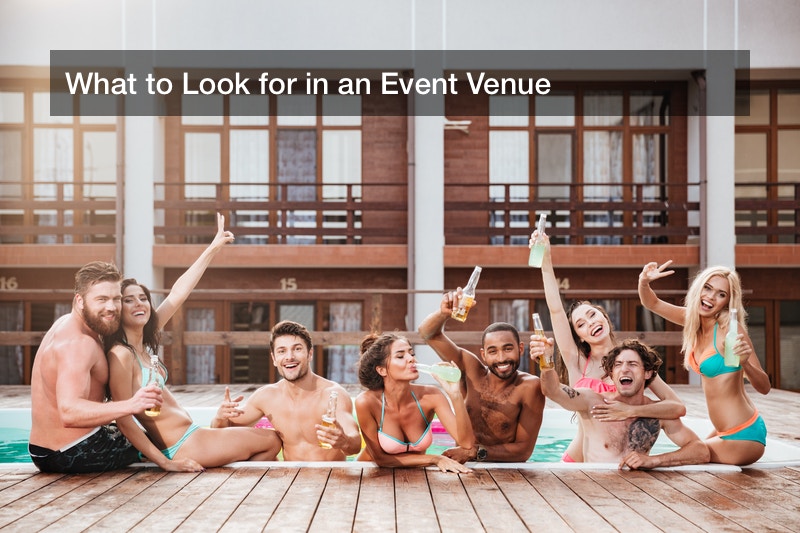
Most events call for a venue, the place where the event takes place. Some are indoor, and some are outdoor, but all of them needed to be scouted ahead of time so the event’s organizers have time to consider their options and book a place. The best venues may range widely, from a sunny park in spring or summer all the way to a private room in a restaurant or even in a movie theater. And of course, banquet halls and convention centers often serve as the best venues for events, and catering services may be hired to deliver food for the event’s guests. The best venues often serve as wedding venues, but that is not the only option. The best venues can also be sought out for a bar or bat mitzvah, a large birthday party, a convention, or even a speech or seminar for business or the arts. What should someone do to make a wedding venue the best it can be? Or what about the venue for a birthday party or baby shower?
Wedding Venues
This is a popular topic, so it will be discussed first. Finding the best venues for a wedding means juggling many different factors, too many to name. One in particular is the timing; when should the venue be scouted out and used for the wedding? Most often, brides and grooms start planning their big day anywhere from 12 months to two years in advance, with 14 being a reasonable average. Early summer and springtime are popular times to marry, not to mention early autumn, so finding the best venues for that time slot means getting ready to face a lot of competition. Earlier is better where that’s concerned, and the price for the venue may be higher for those desirable times of year.
When looking for wedding venues, the planners should make sure that a finalized guest list is created, so they know how much room is needed for everyone. A too-small venue can’t hold everyone, and a too-large venue is a waste of space and money. A wedding guest list may vary greatly, anything from a 50-guest small ceremony to a huge one with 300+ attendees. Such a number can narrow down the list of venue options, and the planners can tour venues that are the right size for that guest list. Visiting in person is essential, so the planners can get a personal impression of what each venue is like, and they can consult the staff about all kinds of details.
For example: is catering provided, or will an outside caterer be needed? And will chairs and tables be available, or will outside chair and table rental companies be needed? And once a venue is chosen, getting insurance for it is a very good idea, such as if the wedding is canceled or if the venue suffers damage (earthquake, fire, water leak, etc) that makes it unusable for the big day. This can save a lot of money on the planners’ part, and in some cases where the venue is ruined, the venue’s owners can help the wedding planners find a similar, nearby venue to use as a backup. This isn’t guaranteed to happen, but it’s a possibility to look into.
Other Venues
A ballroom is a common option for seminars or wedding receptions, and a convention center is indeed well suited fora convention of any size. But there are other options too, some of them smaller and more intimate. Suppose it’s time to plan a birthday party, wedding rehearsal dinner, or a baby shower? Many restaurants offer private rooms for these activities, and come with tables and chairs for everyone. In some cases, the venue will be someone’s own residence, if the residence has enough space.
A venue can be outdoors, too, if the weather is fair and the event organizers are interested in this option. Most often, the outdoor venue is a park, and parks may have gardens, lakes, or trees that make for attractive scenery. The venue can take place in a sheltered picnic area there, or the event organizers can rent a large party tent to house everyone. Some party tents come with fabric walls (complete with windows) for privacy.

